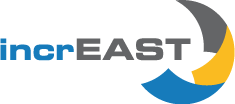

25.01.2024 | Brussels, Belgium
The Conference on the future of the Competitiveness and Innovation Framework Programme (CIP) „Ready to grow? Shaping future EU support for business” took place in Brussels, on 25th January 2010. As a part of public consultation process, the aim of the conference was to collect opinions of the future shape and perspective of the instruments supporting SMEs and Innovation.The panelists of the Conference were:
Mr. Heinz Zourek, Director General of Enterprise and Industry DG,
who underlined that the CIP as an EU instrument with its main achievements as Enterprise Europe Network, eco-innovation pilot and market replication projects, financial instruments, ICT-PSP and IEE has a significant role in that process. However, some improvements can be made, e.g. with regard to increasing the role of financial instruments, supporting services for SMEs going outside the European market and protecting the IPR rights. Additionally, in order to develop synergies between European programmes the Executive Agency for Competitiveness and Innovation (EACI) should manage the part of the Framework Programme “Research for the benefits of SMEs”.
Dr. Paul Rübig, Member of the Committee on Industry, Research and Energy in the European Parliament,
who pointed out several aspects as improvement of the financial infrastructure for SMEs including reduction of administrative burdens, constant development of new products and services, supporting research and market analysis as well as construction of friendly taxation system.
Dr. Anastasia Constantinou, Praxi/ Help-Forward Network,
who stressed the role of the Enterprise Europe Network as an essential tool for supporting SMEs The Network should be further develop in the direction of new services as e.g. supporting SMEs. going abroad, bringing new companies to Europe, simplifying procedures and burdens on main clients – small and medium seized enterprises. However, as long as third countries are not associated with the Programme, their companies cannot be considered as main partners for European SMEs.
Dr. Mark Rahn, UMIP Premier Fund,
who added that Europe needs increasing of commercial projects and support for high-tech companies. Public sector should be more included in the scheme of supporting the SMEs
Mr. Mark Schublin, Director of Mandate Management, European Investment Fund,
who highlighted the role of CIP financial instruments and its positive impact on the European SMEs. Especially, the guarantee schemes appeared to be successful. Additionally, complementarity between national public and private as well as European funds should be protected in order to avoid competition among the structural funds and framework programmes. To other fields of relevant importance belong: eco-innovation, energy efficiency, flexibility of investments guidelines, technology transfer as well as IPR protection.
During the debate on the podium, the panelists agreed on the following issues as potential significant elements of the future Competitiveness and Innovation Framework Programme:
The audience rose following issues of the most importance:
The conference was concluded by Antonjo Tajani, Vice President of the European Commission, Commissioner for Industry and Entrepreneurship, by underling the role of the CIP and its compliance with the priorities of the Strategy “Europe 2020”.
The Commissioner pointed out the areas to be improved in the future Programme:
The Commissioner mentioned selected activities already implemented and contributing to support of the SMEs and the European market, such as SME Financial Forum, involving stock exchanges into facilitation of access to finance as well as Directive on late payments.
In the conference participated the representatives of the IPPT PAN involved in the INCO NET EECA project: Zygmunt Krasiński and Katarzyna Walczyk-Matuszyk. On the occasion of the conference, the IPPT PAN had a meeting with a representative of the European Commission (DG Enterprise and Industry, Unit A1) and discussed the issues on further perspective of the Competitiveness and Innovation Framework Programme (CIP) in the context of the EECA countries.
Further information: http://ec.europa.eu/cip/cip_conference/index_en.htm
Source: IPPT-PAN